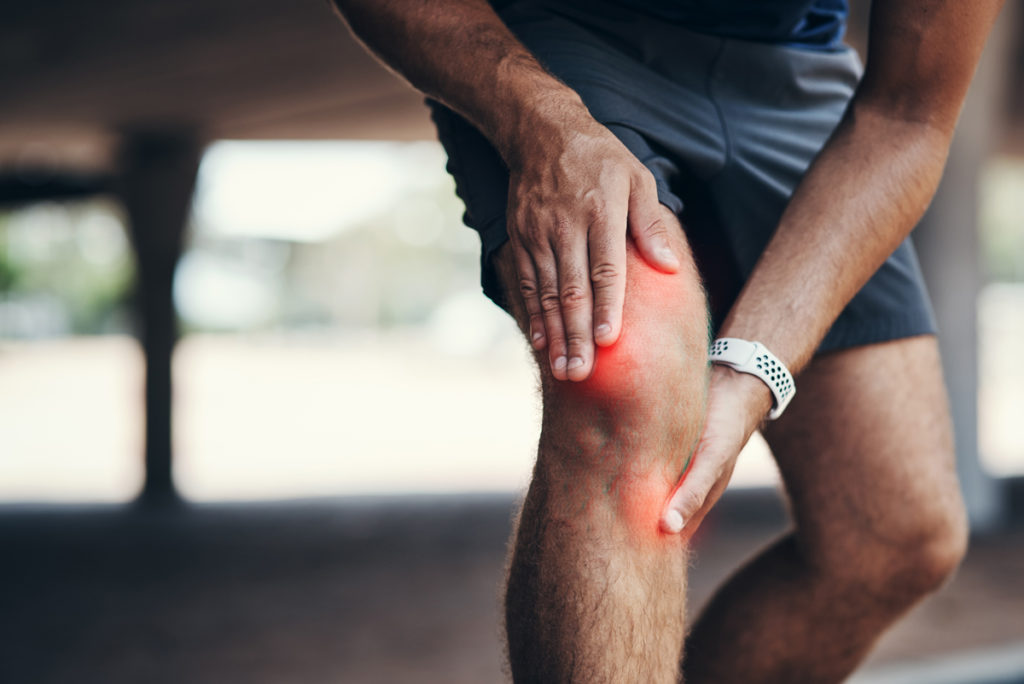If you’re suffering from knee pain, we’ll help determine the best form of treatment for you. From non-surgical treatment options to minimally invasive surgical options, we’ll help get you back to the life you enjoy.
Osteoarthritis (often abbreviated to OA) is a form of arthritis and a degenerative joint disease characterized by the breakdown and eventual loss of joint cartilage. Cartilage is a protein substance that serves as a cushion between the bones of a joint. With OA, the top layer of cartilage breaks down and wears away, allowing bones under the cartilage to rub together.

Have questions? Schedule an appointment today! (801) 355-6468
Although the root cause of osteoarthritis is unknown, the risk of developing symptomatic Osteoarthritis is influenced by multiple factors such as age, gender and inherited traits that can affect the shape and stability of your joints.
Other factors can include:
Symptoms of osteoarthritis of the knee include:
Your physician will begin by reviewing your medical history and symptoms. He or she will observe the natural movement of your knee, evaluate your knee and ankle joint alignment, and check your reflexes, muscle strength, range of motion and ligament stability in the affected knee. Your physician may order X-rays to determine how much joint or bone damage has been done, how much cartilage has been lost and if there are bone spurs present. Additional medical imaging tests such as computed tomography (CT) or magnetic resonance imaging (MRI) may be ordered to determine exactly where the damage is and its extent. Your physician may also order blood tests to rule out other causes of symptoms, or order a joint aspiration which involves drawing fluid from the joint through a needle and examining the fluid under a microscope.
Whether your osteoarthritis is mild or severe, your physician will most likely recommend certain lifestyle changes to reduce stress on your knee joints. Additional disease and pain management strategies may include: physical therapy, steroid injections, over-the-counter pain medications such as acetaminophen, nonsteroidal anti-inflammatory drugs (NSAIDs) or topical pain-relieving creams.
If your symptoms aren’t responding to non-surgical solutions, or your pain can no longer be controlled by medication you could be a candidate for joint replacement surgery.
The most common surgical knee intervention performed for osteoarthritis is a total knee replacement. During this procedure, the diseased bone is removed and resurfaced or replaced with an artificial implant. This treatment option is usually offered to patients with advanced osteoarthritis of the knee.
Total knee replacement is not always optimal for patients with early to mid-stage osteoarthritis in just one or two compartments of the knee. For patients with partial OA of the knee, MAKOplasty® Partial Knee Resurfacing may be the more appropriate solution.
Copyright © 2021 Hofmann Arthritis Institute. All Rights Reserved | Sitemap | No Suprise Act | Site Powered by FUEL Marketing